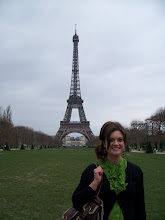Cowboys and Indi-rockers.
In his book Love is a Mixtape, Rolling Stone Editor Rob Sheffield has this to say about country music: “The country singers understand. It’s always the one song that gets you.”
He’s right. He’s an author, a lover of classic literature and not-so-classic 80’s grunge bands, and an editor for Rolling Stone Magazine. And even he knows that country music is where it’s at. So, I think English majors across the (bill)board should listen to country music. Hell, a philosopher who wants to be happy should. And especially all y’all who love MTV.
Somebody should warn Britney Spears who the true womanizers are. Its men like Brad Paisley who write us” little moments.” Or Rascal Flats and the greatest pickup line this side of Memphis: “You don’t look a day over fast cars and freedom” (Rascal Flatts, Fast Cars and Freedom). Sure beats “let me buy u a drank” (T-Pain, Buy U a Drank). It’s the difference between Beyonce’s If I Were a Boy and Diamond Rio’s I am that Man.
Finally, country music defines love in a way matched only by Hemmingway in A Farewell to Arms, but that’s another essay. In fact, country music has helped me quantify some non-negotiables in my definition of love and happiness:
1. “ I wanna love like Johnny and June”, too. (Heidi Newfield, Johnny and June)
2. And “I wanna know how forever feels.” (Kenny Chesney, How Forever Feels)
Johnny and June love forever.
3. Maybe I just wanna be one of “couple of kids just tryin’ to save each other.” JameyJohnson, In Color)
4. Or, maybe I just wish Brad Paisley or Tim McGraw were single.
All that to say, in the epic battle that is Cowboys vs. Indi-rockers, my money is on the cowboy.
Every time.
Tuesday, July 28, 2009
Sunday, July 26, 2009
If "I Sing Because I'm Happy" then I write because it makes me happy.
In his 2006 “Best American” essay, Alan Shapiro asks us Why Write? Although his meditation is distinctly optimistic and highlights many personal reasons for writing, he has indirectly brought his reader into a larger framework of writing and philosophy. There are so many different reasons to write. For some, writing is an occupation. For others, a means to convey truth. It is both a social reform vehicle and an exercise in the arbitrary. It can be therapeutic, and it can be hell. It can document history, and it can cheat it. It can destroy. It can save. It requires both arrogance and humility. It’s a prison and an escape. But no matter the motivation or the even outcome, written word is an art and it survives. Even when the author doesn’t.
In her book Living By Fiction, Annie Dillard has this to say: “We lock in asylums those who see meaning in clouds and rocks…where do those of us who are not in asylums draw the line—by tacit agreement—between the humanly meaningful and the meaningless? Is the search for meaning among the high heaps of the meaningless a fool’s game? It is art’s game? . . . Do we ever discover meaning, or do we always make it up?”
So, why write? Maybe because you are that somebody that refuses to let seemingly insignificant moments slip into the “abyss of history” unnoticed. Somebody that won’t stop believing that words matter. A lot. And to all those somebody’s out there, thank you for your words. History has proved you are in good company. I think William Shakespeare would agree.
And let’s not forget about my other favorite William. He leaves us bloggers with most valuable advice: “It is dangerous to leave written that which is badly written. A chance word, upon paper, may destroy the world. Watch carefully and erase while the power is still yours. I say to myself, for all that is put down, once it escapes, may rot its way into a thousand minds, then can become a black smut, and all libraries, of necessity be burned to ground as a consequence. Only one answer: write carelessly so that nothing that is not green will survive.” - William Carlos Williams
And it is in that spirit – with that sense of caution – that I begin blogging.
In her book Living By Fiction, Annie Dillard has this to say: “We lock in asylums those who see meaning in clouds and rocks…where do those of us who are not in asylums draw the line—by tacit agreement—between the humanly meaningful and the meaningless? Is the search for meaning among the high heaps of the meaningless a fool’s game? It is art’s game? . . . Do we ever discover meaning, or do we always make it up?”
So, why write? Maybe because you are that somebody that refuses to let seemingly insignificant moments slip into the “abyss of history” unnoticed. Somebody that won’t stop believing that words matter. A lot. And to all those somebody’s out there, thank you for your words. History has proved you are in good company. I think William Shakespeare would agree.
And let’s not forget about my other favorite William. He leaves us bloggers with most valuable advice: “It is dangerous to leave written that which is badly written. A chance word, upon paper, may destroy the world. Watch carefully and erase while the power is still yours. I say to myself, for all that is put down, once it escapes, may rot its way into a thousand minds, then can become a black smut, and all libraries, of necessity be burned to ground as a consequence. Only one answer: write carelessly so that nothing that is not green will survive.” - William Carlos Williams
And it is in that spirit – with that sense of caution – that I begin blogging.
Subscribe to:
Comments (Atom)
